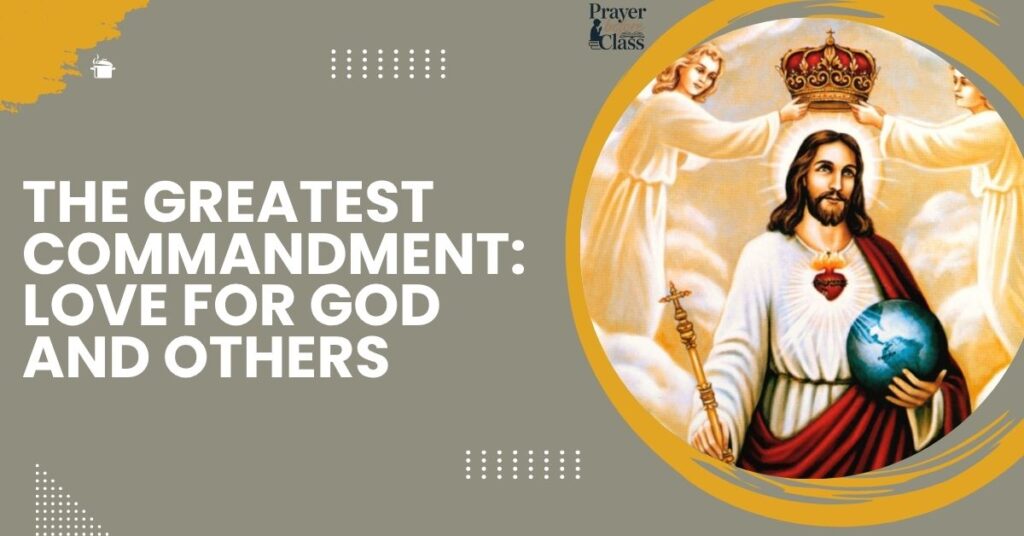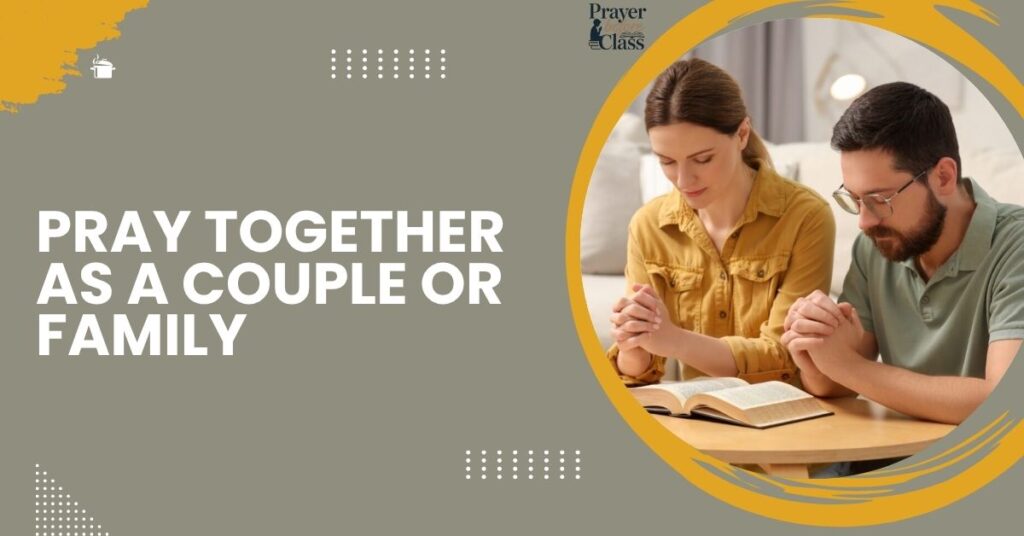Valentine’s Day is widely known for romance, chocolates, and heartfelt gestures, but its deeper meaning goes beyond modern traditions. Rooted in history and faith, this day has spiritual connections that often go unnoticed. The Bible offers profound insights into love its purpose, forms, and divine origin. Exploring these truths reveals a richer perspective on what Valentine’s Day can truly represent.
In Scripture, love is not just emotion it’s a choice, a sacrifice, and a reflection of God’s heart. From the selfless acts of Christ to the call to love others, the Bible defines love in powerful ways. Understanding Valentine’s Day through this lens invites us to embrace love that is pure, patient, and purposeful. Discover how biblical love can transform how we view this special day.
Sacrificial Love
Sacrificial love is at the heart of the Bible’s message, shown perfectly through Jesus Christ.
John 15:13 says, “Greater love has no one than this: to lay down one’s life for one’s friends.”
This kind of love puts others first, even at great personal cost.
It reflects God’s ultimate gift—loving us enough to give His Son for our salvation.
Romantic Love and Marriage

Romantic love and marriage are celebrated in the Bible as a sacred bond between two people. This love is built on trust, respect, and deep emotional connection. God designed marriage to be a union where both partners support and cherish one another. It mirrors the love Christ has for His Church.
“Therefore a man shall leave his father and mother and be joined to his wife, and they shall become one flesh.” — Genesis 2:24
Love Beyond Romance
Love beyond romance is the kind of love that serves, forgives, and stands strong through trials. It shows up in friendships, families, and in how we care for strangers. This love is patient, selfless, and rooted in action more than emotion. It mirrors God’s unconditional love for all people.
“Above all, love each other deeply, because love covers over a multitude of sins.” —1 Peter 4:8
Origins of Valentine’s Day and Its Christian Roots

Valentine’s Day traces its origins to a blend of ancient Roman and Christian traditions. One key figure is Saint Valentine, a priest who was martyred for secretly marrying couples during a time when marriage was banned for soldiers. His actions were rooted in deep Christian love and commitment to God’s design for marriage and sacrifice.
Over time, the Church honored his legacy by establishing February 14 as a feast day in his name. Though modern celebrations focus on romance, the roots of Valentine’s Day are tied to faith, courage, and sacrificial love. It reminds us that true love is not just emotional—it’s spiritual and selfless.
Biblical Meaning of Love
The biblical meaning of love goes far beyond feelings—it’s an action rooted in selflessness, patience, and truth. Scripture teaches that love is the greatest commandment, calling us to love God and others wholeheartedly. True love reflects God’s nature: enduring, forgiving, and unconditional. It’s the foundation of every meaningful relationship in the Christian life.
- Unconditional Love (Agape): God’s love is not based on our actions or worth but is freely given without conditions (Romans 5:8).
- Selfless Action: Biblical love involves putting others’ needs before our own, just as Christ sacrificed Himself for us (John 15:13).
- Patient and Kind: Love in the Bible is defined by patience, kindness, and humility, as described in 1 Corinthians 13:4–7.
- Obedience to God: Loving God means obeying His commands and living out His truth through our actions (John 14:15).
The Concept of Love in the Bible

The concept of love in the Bible is multifaceted, emphasizing both God’s love for humanity and the love we are called to show one another. It is rooted in selflessness, sacrifice, and unconditional commitment, as seen in God’s relationship with His people. Biblical love transcends emotions, focusing on actions that honor God and serve others. Ultimately, the Bible teaches that love is central to living a Christ-centered life, embodying kindness, patience, and forgiveness.
Old Testament Foundations
The Old Testament lays the foundation for love by emphasizing God’s covenant with His people. It teaches love through commands like “Love your neighbor as yourself” Leviticus 19:18. This love is shown through loyalty, justice, and kindness. God’s love for Israel sets the example for how believers should love others.
The Greatest Commandment

The Greatest Commandment, according to the Bible, calls us to love God with all our heart, soul, and mind. Jesus emphasizes that this is the first and most important command. The second is to love our neighbors as ourselves. These commandments form the foundation of all other teachings in the Bible Matthew 22:37-39.
Love in Action
Love in action, according to the Bible, means showing kindness, patience, and compassion toward others. It goes beyond words, demonstrating care through deeds. Jesus taught that true love involves serving others selflessly, even at a personal cost. As 1 John 3:18 says, “Let us not love with words or speech but with actions and in truth.”
Biblical Themes for Reflection on Valentine’s Day

Valentine’s Day is a great time to reflect on biblical themes like selfless love, faithfulness, grace, and forgiveness. These values remind us of God’s love and how we should treat others. True love, as shown in Scripture, is patient, kind, and enduring. It calls us to love not just romantically but with God’s heart for all.
God’s Unfailing Love
God’s unfailing love is a steady anchor in a changing world. It doesn’t depend on our actions or worthiness. His love is patient, forgiving, and everlasting.
Key Scriptures:
- Psalm 136:26 – “Give thanks to the God of heaven. His love endures forever.”
- Lamentations 3:22-23 – “Because of the Lord’s great love we are not consumed, for his compassions never fail. They are new every morning; great is your faithfulness.”
- Romans 8:38-39 – “For I am convinced that neither death nor life… nor anything else in all creation, will be able to separate us from the love of God that is in Christ Jesus our Lord.”
Reflection Point: God’s unfailing love reminds us that we are never alone, even in our weakest moments. His love is constant, unconditional, and stronger than any hardship we face.
Read this Blog:10 Powerful Closing Prayer For Sunday School
The Greatest Commandment: Love for God and Others

The greatest commandment calls us to love God with all our heart, soul, and mind. It also urges us to love others as ourselves. This kind of love reflects God’s character and brings harmony to our lives and relationships.
Key Scriptures:
- Matthew 22:37–39 :“Love the Lord your God with all your heart and with all your soul and with all your mind… And the second is like it: ‘Love your neighbor as yourself.’”
- Deuteronomy 6:5 : “Love the Lord your God with all your heart and with all your soul and with all your strength.”
- Leviticus 19:18 :“Do not seek revenge or bear a grudge against anyone among your people, but love your neighbor as yourself. I am the Lord.”
Reflection Point:Loving God fully means surrendering our hearts, minds, and actions to Him daily.Loving others reflects God’s character and brings His love to life in our relationships.
Sacrificial Love

Sacrificial love is selfless and puts others’ needs before our own. It’s the kind of love Jesus demonstrated on the cross. True love gives without expecting anything in return.
Key Scriptures:
- John 15:13 – “Greater love has no one than this: to lay down one’s life for one’s friends.”
- Romans 5:8 – “But God demonstrates his own love for us in this: While we were still sinners, Christ died for us.”
- 1 John 3:16 – “This is how we know what love is: Jesus Christ laid down his life for us. And we ought to lay down our lives for our brothers and sisters.”
Reflection Point: Sacrificial love means putting others before ourselves, even when it costs us something. It reflects the heart of Christ, who gave everything for us.True love isn’t just words—it’s action, selflessness, and deep commitment.
Love as a Reflection of God’s Character

Love reflects God’s nature because God is love. When we love others selflessly, we mirror His heart.Our love becomes a witness of His grace and truth in us.
Key Scriptures:
- 1 John 4:8 – “Whoever does not love does not know God, because God is love.”
- Ephesians 5:1–2 – “Follow God’s example, therefore, as dearly loved children and walk in the way of love, just as Christ loved us…”
- John 13:34–35 – “A new command I give you: Love one another. As I have loved you, so you must love one another. By this everyone will know that you are my disciples…”
Reflection Point:Love mirrors God’s nature—it is patient, kind, and selfless. When we love others, we reveal God’s heart to the world. Our actions become a testimony of His presence within us.
The Qualities of Love

Love is patient, kind, and free from envy or pride. It does not dishonor others or keep records of wrongs. True love always protects, trusts, hopes, and perseveres.
Key Scriptures:
- 1 Corinthians 13:4-7 – “Love is patient, love is kind. It does not envy, it does not boast, it is not proud… It always protects, always trusts, always hopes, always perseveres.”
- Colossians 3:14 – “And over all these virtues put on love, which binds them all together in perfect unity.”
- 1 Peter 4:8 – “Above all, love each other deeply, because love covers over a multitude of sins.”
Reflection Point: True love is marked by patience, kindness, humility, and perseverance. It doesn’t seek its own way but values others and forgives freely.Reflecting these qualities shows Christ’s love working through us daily.
Unity in Love

Unity in love brings people together in harmony and peace.It reflects the bond of the Spirit and strengthens the body of Christ.When love leads, divisions fade and true fellowship grows.
Key Scriptures:
- Ephesians 4:2-3– “Be completely humble and gentle; be patient, bearing with one another in love. Make every effort to keep the unity of the Spirit through the bond of peace.”
- Colossians 3:14 – “And over all these virtues put on love, which binds them all together in perfect unity.”
- 1 Peter 3:8 – “Finally, all of you, be like-minded, be sympathetic, love one another, be compassionate and humble.”
Reflection Point: Unity in love reflects the heart of God and strengthens the body of Christ.When we lead with humility and patience, love becomes our common ground.True unity is not sameness but choosing peace and compassion in our differences.
Love as Service

Love as service means putting others before yourself with a humble heart.Jesus modeled this by serving His disciples and caring for the needy.Serving others in love reflects true discipleship and God’s compassion.
Key Scriptures:
- John 13:14-15 – “Now that I, your Lord and Teacher, have washed your feet, you also should wash one another’s feet. I have set you an example that you should do as I have done for you.”
- Galatians 5:13– “Serve one another humbly in love.”
- 1 Peter 4:10 – “Each of you should use whatever gift you have received to serve others, as faithful stewards of God’s grace in its various forms.”
Reflection Point: Love as service means putting others before ourselves. It reflects Christ’s humility and compassion in action. Serving with love brings unity and reveals God’s grace to the world.
Forgiveness as an Expression of Love

Forgiveness is a powerful act of love that heals hearts and restores relationships. It reflects God’s mercy and invites peace. Loving others means letting go of the past hurts.
Key Scriptures:
- Ephesians 4:32 – “Be kind and compassionate to one another, forgiving each other, just as in Christ God forgave you.”
- Matthew 18:21-22 – “Then Peter came to Jesus and asked, ‘Lord, how many times shall I forgive my brother or sister who sins against me? Up to seven times?’ Jesus answered, ‘I tell you, not seven times, but seventy-seven times.'”
- Colossians 3:13 – “Bear with each other and forgive one another if any of you has a grievance against someone. Forgive as the Lord forgave you.”
Reflection Point: Forgiveness reflects God’s love by offering grace despite wrongdoing. It frees both the giver and the receiver, healing relationships. True forgiveness mirrors the sacrificial love Christ showed us.
Faith, Hope, and Love

Faith, hope, and love are foundational virtues that guide Christian life. Faith anchors us in God’s promises, while hope looks forward to His eternal goodness. Love binds these virtues together, reflecting God’s nature in our lives.
Key Scriptures:
- 1 Corinthians 13:13 – “And now these three remain: faith, hope and love. But the greatest of these is love.”
- 1 Thessalonians 1:3 – “We continually remember before our God and Father your work produced by faith, your labor prompted by love, and your endurance inspired by hope in our Lord Jesus Christ.”
- Colossians 1:5 – “The faith and love that spring from the hope stored up for you in heaven and about which you have already heard in the true message of the gospel.”
Reflection Point: Faith, hope, and love are the foundation of a Christian life, each one strengthening the other. Faith anchors us in God’s promises, hope propels us toward a future with Him, and love binds us together. Together, they guide our actions, reflecting God’s heart in all we do.
The Joy of Giving Love

The joy of giving love lies in the selfless act of sharing with others. It brings fulfillment, knowing that love has the power to heal and uplift. In giving love, we reflect God’s love and experience deep, lasting joy.
Key Scriptures:
- Acts 20:35 – “In everything I did, I showed you that by this kind of hard work we must help the weak, remembering the words the Lord Jesus himself said: ‘It is more blessed to give than to receive.’”
- 2 Corinthians 9:7 – “Each of you should give what you have decided in your heart to give, not reluctantly or under compulsion, for God loves a cheerful giver.”
- 1 John 3:17 – “If anyone has material possessions and sees a brother or sister in need but has no pity on them, how can the love of God be in that person?”
Reflection Point: Giving love brings lasting joy that goes beyond temporary happiness.It reflects God’s heart and blesses both the giver and receiver.True joy comes when we love selflessly, just as Christ did.
Practical Ways to Celebrate Valentine’s Day Biblically

Celebrate Valentine’s Day by showing Christlike love to others through acts of kindness and service.Spend time in prayer, gratitude, and reading Scriptures about love.Share God’s love with those who may feel lonely or forgotten.
Serve Others with Love
Serving others with love reflects Christ’s heart and teachings. It’s a powerful way to live out our faith and share God’s kindness. Even small acts like helping a neighbor or encouraging a friend carry great meaning. On Valentine’s Day, consider showing love through service, just as Jesus did.
Practical Steps:
- Volunteer together at a local charity or community event to help those in need.
- Look for opportunities to support neighbors or friends, such as running errands or offering assistance.
- Donate time, resources, or money to causes that align with your values and show God’s love to others.
Reflect on God’s Word About Love

Reflecting on God’s Word about love helps us see its true meaning beyond emotions. The Bible teaches that love is patient, kind, and selfless. Spending time in Scripture reveals how God loves us and how we should love others. It’s a powerful way to realign our hearts with His on Valentine’s Day.
Practical Steps:
- Read Bible passages that highlight God’s love, such as 1 Corinthians 13 or John 3:16.
- Discuss with your loved ones how these scriptures apply to your relationships.
- Meditate on God’s love throughout the day, allowing it to shape your actions and attitudes.
Pray Together as a Couple or Family

Praying together as a couple or family is a powerful way to strengthen relationships and deepen faith. It creates a bond that is rooted in God’s love and invites His presence into everyday life. Through prayer, we acknowledge our dependence on God and seek His guidance. This shared practice of communication with God fosters unity and love within the family or marriage.
Practical Steps:
- Choose a quiet time each day to pray, creating a peaceful environment for connection.
- Share specific prayer requests and pray for each other’s needs and growth.
- Close your prayer time by thanking God for His love and blessings, strengthening your bond in faith.
Give Thoughtful, Christ-Centered Gifts

Giving thoughtful, Christ-centered gifts reflects the love of God and deepens relationships. These gifts should align with the values of faith, kindness, and service to others. By focusing on the spiritual significance of giving, we honor God’s love for us. A Christ-centered gift can be a meaningful way to share God’s love with those we cherish.
Practical Steps:
- 1. Choose gifts that reflect your love for the person and their faith, like a Bible or a devotional book.
- 2. Personalize the gift by considering the recipient’s spiritual journey and needs.
- 3. Write a heartfelt note or prayer to accompany the gift, expressing your love and encouragement in Christ.
Show Kindness to the Lonely or Needy

On Valentine’s Day, reach out to those who may feel forgotten or isolated. Show kindness by offering a listening ear, a helping hand, or a warm meal. Small acts of love can have a profound impact on someone in need. Remember, love is not just for couples, but for everyone around us.
Practical Steps:
- Reach out with a simple phone call, text, or visit to let them know they are cared for.
- Volunteer at local shelters or donate items like food or clothes to those in need.
- Write a heartfelt note or card to encourage and uplift someone who may be feeling isolated.
Express Gratitude for God’s Unfailing Love

Expressing gratitude for God’s unfailing love can be as simple as acknowledging His constant presence in our lives. Take time to reflect on His faithfulness and the countless blessings He has provided. Let your heart overflow with thankfulness, sharing His love with others in return.
Practical Steps:
- Begin each day by thanking God in prayer for His constant and unwavering love.
- Write down specific moments when you’ve experienced God’s love and reflect on them regularly.
- Share your gratitude by serving others and showing love, reflecting God’s kindness in your actions.
Final words
Valentine’s Day, often celebrated with romance and gifts, holds a deeper, more meaningful message when viewed through the lens of Scripture. The Bible teaches that love is patient, sacrificial, and rooted in God’s character. Whether it’s agape, phileo, eros, or storge, each form of love reflects God’s design for human relationships.
By exploring the biblical meaning of Valentine’s Day, we’re reminded that true love goes beyond feelings—it is a commitment to serve, forgive, and cherish others. As we celebrate this day, may we reflect on God’s unfailing love and strive to share that love in every area of our lives.

